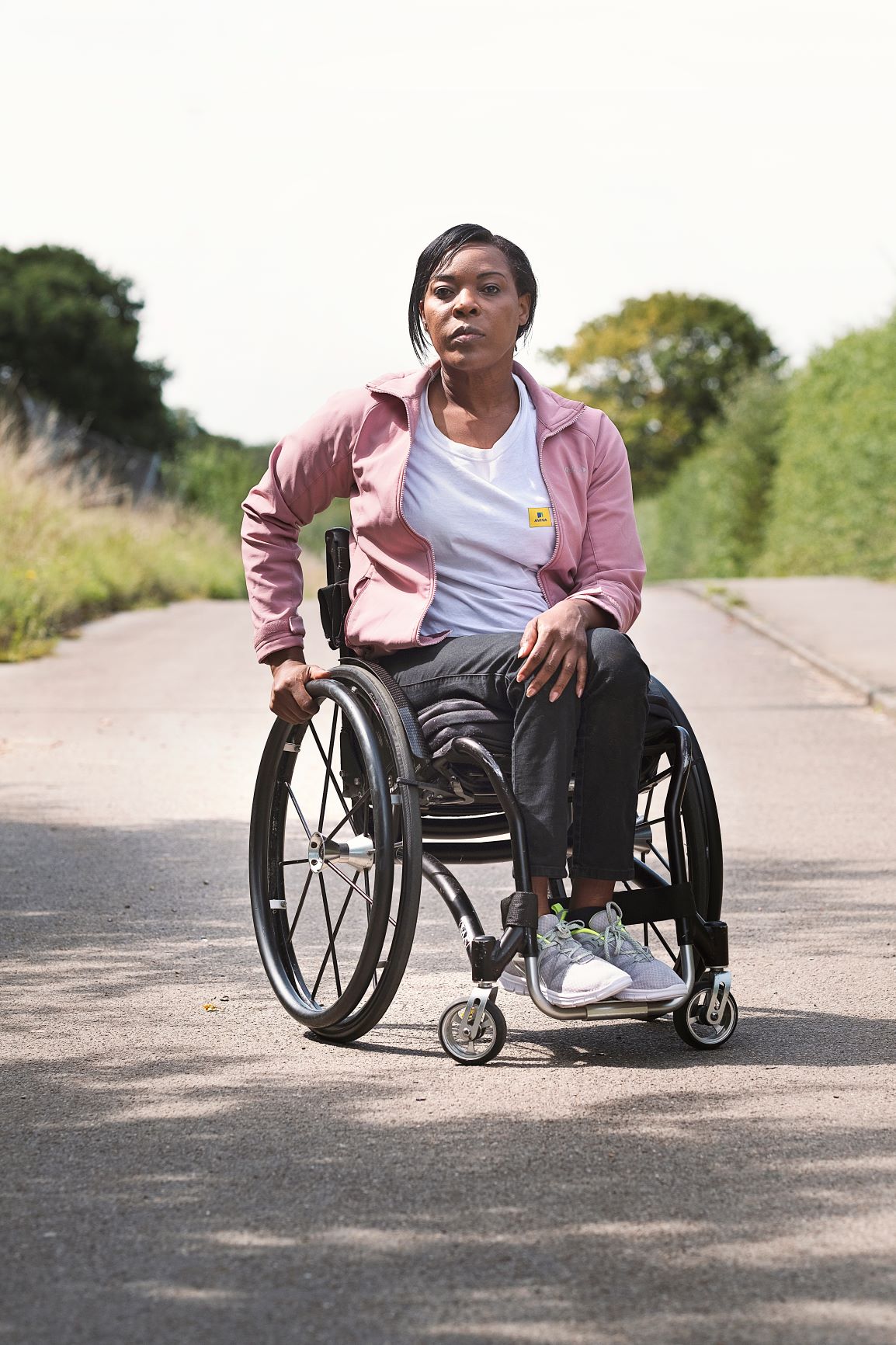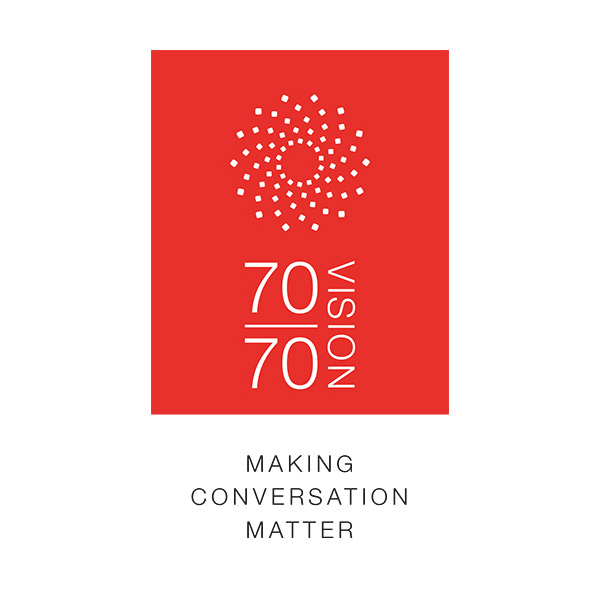 Much of my family originates from a small, traditional African village called Mihuu in western Kenya. My grandparents and several generations before that were Muslim. My grandmother was keen for her children (my father included) to receive a good education. Quakerism, the Christian religious movement, was spreading throughout western areas of Kenya and my grandmother knew they offered such educational opportunities – but first she’d need to change her faith to Christianity. By doing so she knew very well that her husband (my grandfather) would have no choice but to divorce her; she deemed it a price worth paying. Although in later life she became a respected community figure, those early years (raising seven children as a divorced woman) must have come with unimaginable difficulties. The strength and determination of my grandmother has always been an inspiration to me.
Much of my family originates from a small, traditional African village called Mihuu in western Kenya. My grandparents and several generations before that were Muslim. My grandmother was keen for her children (my father included) to receive a good education. Quakerism, the Christian religious movement, was spreading throughout western areas of Kenya and my grandmother knew they offered such educational opportunities – but first she’d need to change her faith to Christianity. By doing so she knew very well that her husband (my grandfather) would have no choice but to divorce her; she deemed it a price worth paying. Although in later life she became a respected community figure, those early years (raising seven children as a divorced woman) must have come with unimaginable difficulties. The strength and determination of my grandmother has always been an inspiration to me.
In 1972 (aged two) I contracted polio, though it wasn’t diagnosed at the time. Until then I was a normal healthy child, but once I’d contracted the infectious disease I became incapacitated from head to toe. In the eyes of concerned villagers, unaware that the cause of my troubles was an illness, I was a half-dead child. Assumptions grew that the root of my troubles was a curse. With that in mind they treated me with herbs and holy water – in their opinion the most effective way to chase the demons out of me.
The lasting impact of polio only becomes known during the recovery stage. Luckily, the use of my upper body and my communication skills slowly returned. Unfortunately my lower body was paralysed, but I count my blessings – it could have been far worse.
'They believed if I wasn't sacrificed to the gods the curse would spread to others'
However, the villagers, still unaware what was wrong, stigmatised me. They wanted me gone, attempting to burn our hut down regardless of who was in it. They believed that if I wasn’t sacrificed to the gods the curse would spread to others. On the eve of the third arson attempt, having been tipped off by my grandfather, my parents fled to Nairobi with myself and my siblings. With my father being in the army, we headed for the safety of the army barracks where he was stationed. After explaining the situation, his officers agreed the best thing was for us to stay in the married quarters. Soon after he took me to the onsite medics, who then referred me to a hospital. A British doctor quickly identified me as having had polio.
I suffered a lot due to my disability, more so being a female – I was blatantly excluded from many things. It wasn’t until I was five, when I attended a school for the physically handicapped (set up by the Salvation Army), that I received help in the form of leg braces. Until then I was reliant on my parents for mobility or crawled around. I completed my schooling at a mainstream secondary school and then went on to university, where I graduated with degrees in both history and Swahili language. My intention was to become a lawyer, having witnessed so much injustice towards women (especially those with disabilities) – my aim was to make the world a better place. Sadly my aspirations never materialised, due to my grades being just below the minimum to study law. Therefore, I became a teacher – but my views towards discrimination never lessened.
In my late twenties I met my now husband, a Geordie who’d volunteered to teach in Africa through the VSO (Voluntary Service Overseas). After two years of dating we got engaged and shortly after visited the UK. First stop, Newcastle – a culture shock for someone like myself who’d never left Kenya. Seeing as we were in England we brought plans forward and got married, with the intention of returning to Kenya. In the interim my husband applied for and was successful in obtaining a teaching post in Harlow. However, soon after arriving in the town I became pregnant. Medical complications due to my disability resulted in our return to Kenya being put further on hold.
Before our arrival in Harlow, we’d been warned about certain groups who were hostile towards ethnic minorities. My husband was especially concerned; his paranoia alarmed me to the point where, even though I was in a high-rise flat, I would timidly peek from behind the curtains. The first time I went shopping my husband, walking ten yards behind, tagged along to gauge people’s reactions towards me, assuming a disabled black woman in traditional African clothing would be too much for some to handle. I needn’t have worried; to this day I’ve never experienced any racism in Harlow.
'I've never experienced any racism in Harlow'
Whenever I spotted another black person I’d feel a bond. If my exuberant ‘hello’ was acknowledged I’d eagerly engage in conversation, the default question being ‘Where are you from?’ I expected a reply of somewhere in Africa or the Caribbean, but was more often answered, in a strong Essex accent, with Sumners, Passmores and suchlike. I was homesick – I missed my language and culture. After taking advice from my doctor I was quickly provided with a wheelchair and with the help of the MP Bill Rammell I was offered more suitable accommodation. As me and my husband began to make friends, I developed a sense that Harlow was becoming my new home. When my son was born I received support from a wonderful health visitor named Evelyn and pastor David Glanfield and wife Diane, who helped me further develop my sense of belonging and integrate myself into the community. Like any mother, I wanted to know what it was like to push my newborn son in a pushchair. For obvious reasons it wasn’t that easy, so me and my husband adopted something we called ‘the train’. Picture this: a white man, pushing a disabled black women, who was pushing a mixed-race child in a pushchair – it certainly turned some heads!
Keen to lose the weight I’d put on during pregnancy, I starting going to a gym. If not for John Campbell (a fitness instructor) I would’ve soon given up. Unlike the gym staff, unsure what I could or couldn’t do, John helped and adapted machines so I could increase training little by little. As my fitness increased I was encouraged to consider taking part in disability sports – prior to this I’d no idea such a thing existed. I went to an athletics track in Harlow and introduced myself to coach Terry Martin, who was instrumental in getting my first racing wheelchair. As my performance both on the track and Harlow’s cycle lanes (my impromptu training tracks) improved, coach Alan Stevens took me under his wing. His motivation took me all the way to the 2004 Paralympics in Athens, where I became the first wheelchair racer from Sub-Saharan Africa to compete. In 2006, having become a British citizen, I joined Team GB. In 2007 I won bronze at the Paralympic World Cup and only just missed qualifying for the Beijing Olympics by 0.1 seconds. In 2012 I was a torchbearer for the London 2012 Paralympics and a sporting ambassador. In 2014 I was awarded an MBE by the Queen for my services to disability sports and charitable work. In recent years my focus, through a foundation I established in 2012, has turned towards campaigning to alleviate inequality and discrimination for those with disabilities in Essex, the UK and beyond. If I say so myself, it’s remarkable for a young girl who it was considered would amount to nothing in life.
People often say that those in Harlow don’t have time for anyone … I feel quite the opposite. I’ll never forget those wonderful people who helped me, embraced me and supported me – at times it has left me feeling rather humble.
